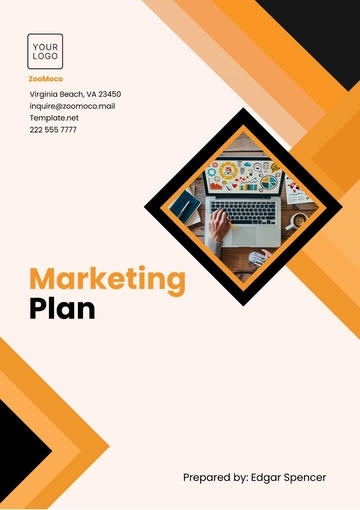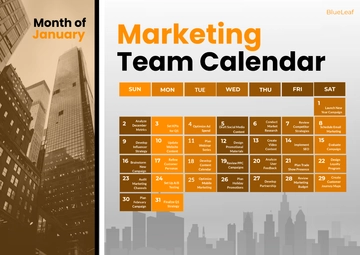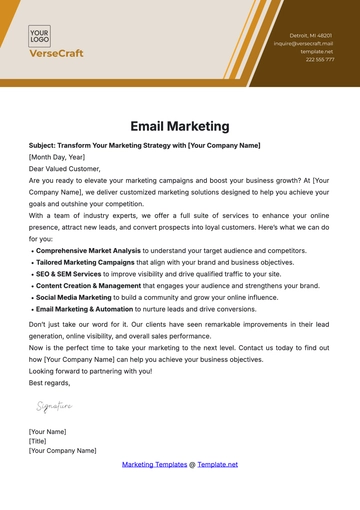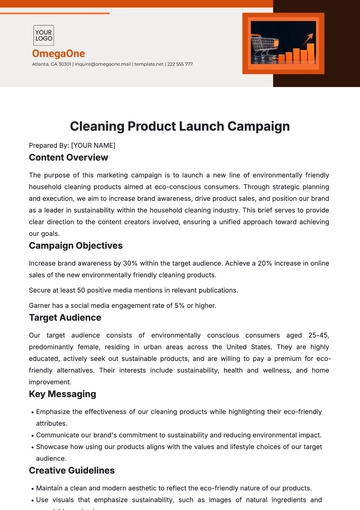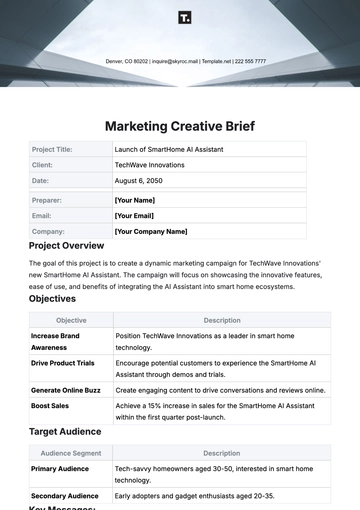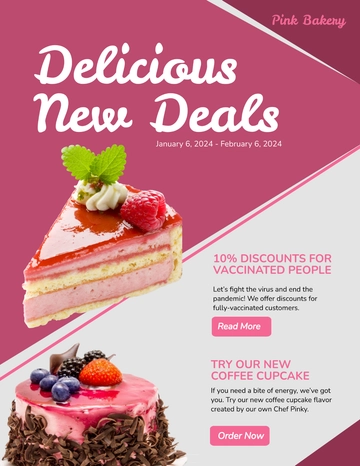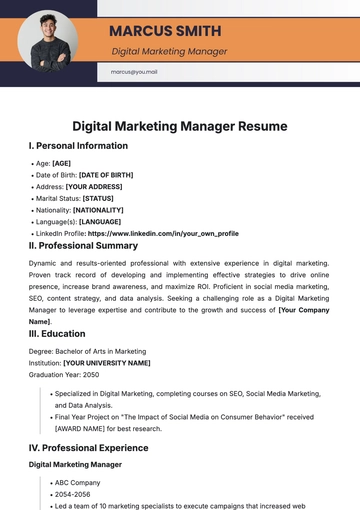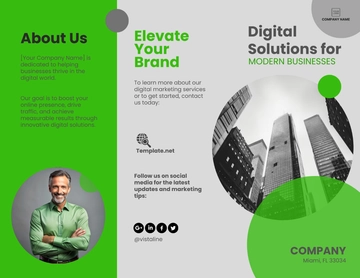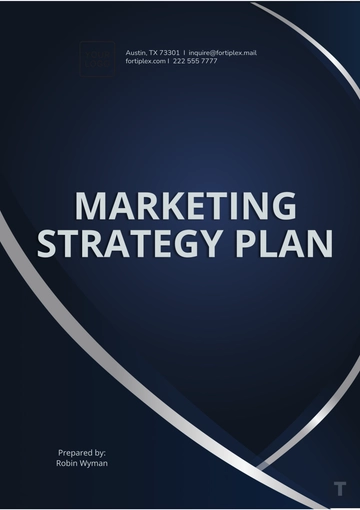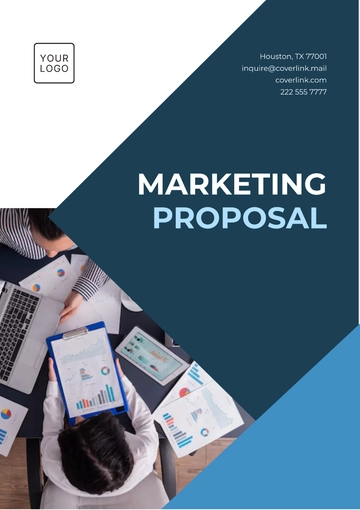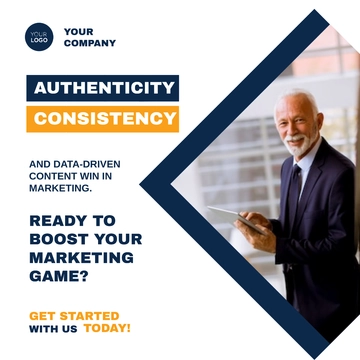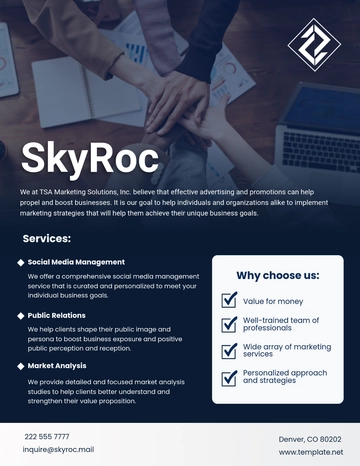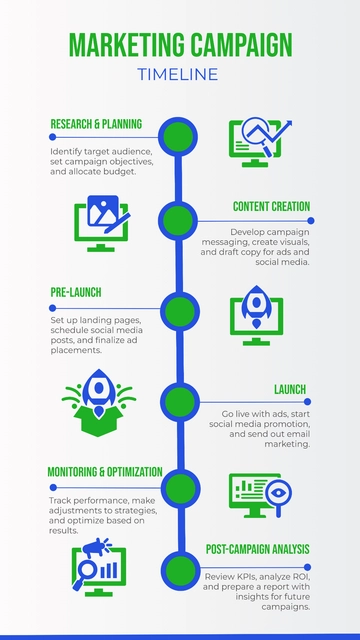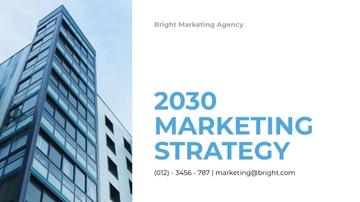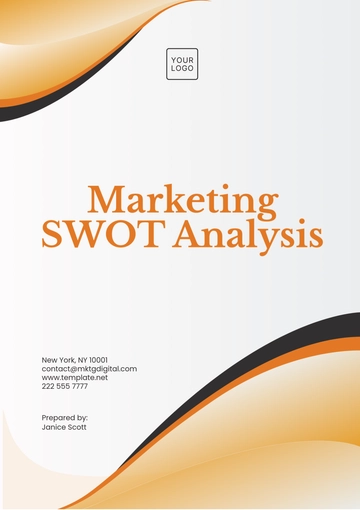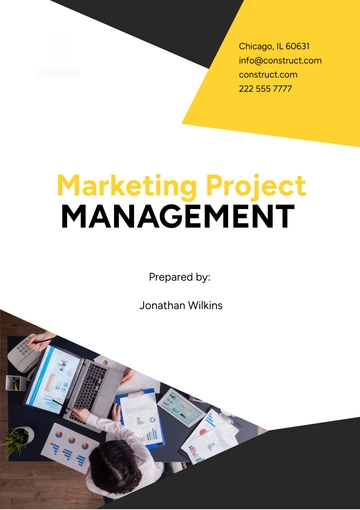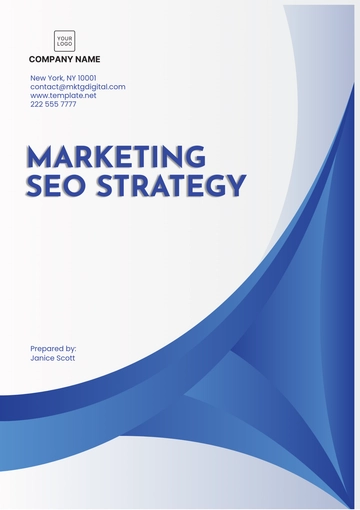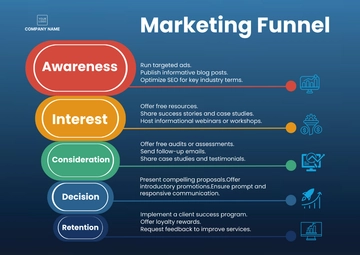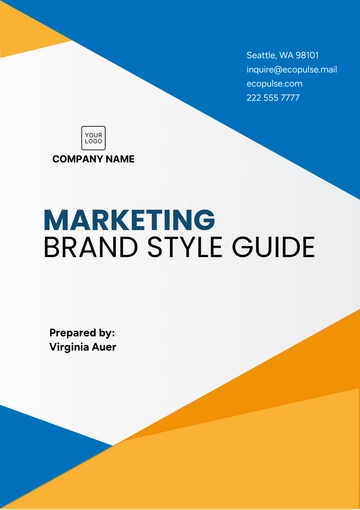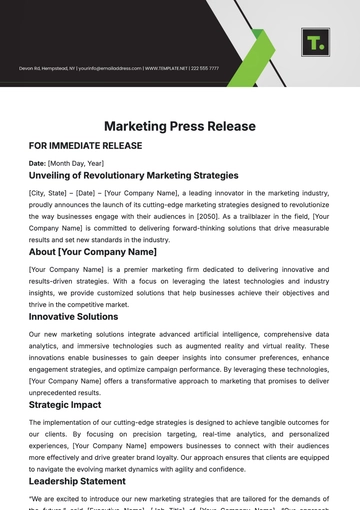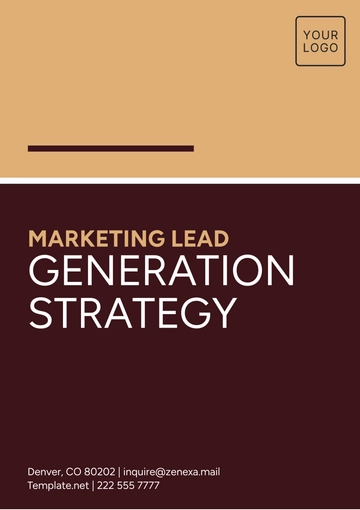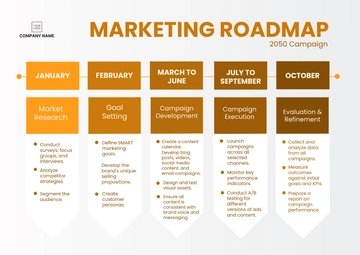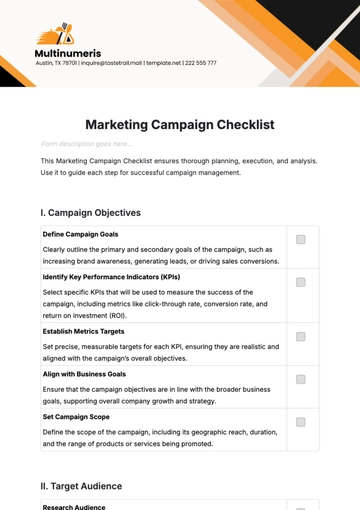Free Marketing Audience Engagement Content Study

Content Study
I. Executive Summary
[Your Company Name], a leading marketing agency, presents this Marketing Audience Engagement Content Study. Our study focuses on optimizing content strategies to enhance audience engagement.
In this report, you'll find valuable data on audience personas, content performance, competitive analysis, and actionable recommendations. By implementing these findings, you can elevate your content marketing efforts and drive meaningful connections with your target audience.
II. Introduction
Welcome to the Marketing Audience Engagement Content Study by [Your Company Name]. As a dedicated Marketing Professional, you understand the pivotal role of engaging content in today's digital landscape. In this comprehensive study, we delve into strategies that can help you maximize your content's impact.
Our aim is to provide you with actionable insights into audience persona analysis, content inventory, and channel effectiveness. By the end of this report, you'll be equipped to fine-tune your marketing campaigns and create content that resonates with your target audience, adhering to US marketing legal and standard guidelines. Let's embark on this journey to elevate your marketing endeavors.
III. Audience Persona Analysis
Understanding your audience is the cornerstone of effective content marketing. In this section, we will construct detailed profiles of your target audience to help you tailor your content to their specific preferences and needs.
Audience Persona | Tech-Savvy Millennials | Health-Conscious Parents | Business Professionals |
Demographics | Age: 25-34 | Age: 30-45 | Age: 35-50 |
Gender: Male | Gender: Female | Gender: Male/Female | |
Location: Urban | Location: Suburban | Location: Urban | |
Income: $50,000 - $75,000 | Income: $60,000 - $90,000 | Income: $80,000 - $120,000 | |
Education: Bachelor's Degree | Education: Some college | Education: Master's Degree | |
Psychographics | Interests: Technology, Gaming, Fitness | Interests: Healthy cooking, Parenting tips | Interests: Leadership, Career Growth |
Hobbies: Cooking, Traveling | Hobbies: Yoga, Gardening | Hobbies: Networking, Reading | |
Values: Sustainability, Innovation | Values: Family, Health | Values: Success, Continuous Learning | |
Pain Points: Work-Life Balance | Pain Points: Time constraints, Childcare | Pain Points: Work stress, Time management | |
Behavioral Insights | Online behavior: Active on social media, frequent app downloads | Online behavior: Engage in parenting forums, subscribe to health newsletters | Online behavior: Active on LinkedIn, follow industry news |
Preferred platforms: Instagram, Reddit | Preferred platforms: Facebook, Pinterest | Preferred platforms: LinkedIn, Twitter | |
Content consumption habits: Video tutorials, podcast listener | Content consumption habits: Recipe blogs, parenting podcasts | Content consumption habits: Business articles, leadership podcasts |
IV. Content Inventory
In this section, we catalog the various content assets that form part of your marketing efforts. This inventory will help you gain a comprehensive view of your content portfolio, enabling better management and strategic planning.
Content Asset | Type | Publication Date | Platform/ Channel | Engagement Metrics |
Blog Post - "Tech Trends 2053" | Blog Post | 2053-03-15 | Website | Views: 5,432 Shares: 423 Comments: 68 CTR: 3.2% |
Video - "Product Demo" | Video | 2053-04-02 | YouTube | Views: 8,765 Likes: 982 Shares: 176 Comments: 112 |
Social Media Post - "Weekly Tips" | Social Media Post | 2053-03-28 | Likes: 1,245 Shares: 98 Comments: 32 | |
Email Newsletter - "March Update" | Email Newsletter | 2053-03-10 | Open Rate: 25%, Click Rate: 7.5%, Unsubscribe Rate: 2% | |
Infographic - "Health Benefits of Our Product" | Infographic | 2053-02-20 | Website, Pinterest | Shares: 567 Repins: 312, Click-throughs: 98 |
V. Content Performance Analysis
In this section, we delve into the performance of your content assets, providing valuable insights to guide your content strategy. Below, you'll find a concise analysis of each content piece, shedding light on audience engagement and content effectiveness. This analysis will help you optimize your future content initiatives for even greater impact and engagement.
Content Asset | Analysis |
Blog Post - "Tech Trends 2053" | This blog post generated significant views and engagement, indicating a strong interest in tech trends among your audience. The CTR of 3.2% suggests effective content promotion. |
Video - "Product Demo" | The video showcasing your product demo garnered substantial views and interactions. The high number of likes and shares indicates positive audience sentiment. |
Social Media Post - "Weekly Tips" | This Instagram post received good engagement, with users liking, sharing, and commenting on it. It effectively captured your audience's attention. |
Email Newsletter - "March Update" | "March Update" The email newsletter achieved a 25% open rate, indicating strong email engagement. The click rate of 7.5% suggests that recipients found the content compelling. The unsubscribe rate is within an acceptable range. |
Infographic - "Health Benefits of Our Product" | The infographic performed well in terms of sharing and click-throughs, showcasing its visual appeal and ability to drive traffic. |
VI. Content Gap Analysis
In this section, we explore the gaps in your current content strategy while identifying exciting opportunities for growth. The table below outlines your existing content categories and highlights where adjustments can enhance your content mix, fostering stronger audience engagement and aligning with evolving interests and preferences.
Content Category | Current Content | Content Gaps and Opportunities |
Blog Posts | Mostly tech trends and product-related topics. | Explore more diverse subjects such as industry insights, customer success stories, or how-to guides to cater to a broader audience. |
Videos | Primarily product demos and promotional videos. | Develop educational content, behind-the-scenes videos, or customer testimonials to provide a richer viewing experience. |
Social Media | Focused on weekly tips and product updates. | Introduce engaging content like user-generated content, polls, or interactive Q&A sessions to foster community engagement. |
Email Newsletters | Monthly updates and product highlights. | Incorporate curated industry news, expert interviews, or educational resources to enhance newsletter value. |
Infographics | Centered on product benefits and features. | Create infographics on industry statistics, data trends, or customer testimonials to broaden appeal. |
Podcasts | Predominantly industry insights and trends discussions. | Include episodes on customer success stories, guest interviews, or niche-specific deep dives for a well-rounded podcast series. |
Whitepapers | Focused on market research reports and product-specific documents. | Develop whitepapers addressing industry challenges, best practices, or future trends to attract a wider audience. |
VII. Competitive Analysis
To stay ahead in the dynamic landscape of content marketing, understanding your competitors is essential. In this section, we dissect the strategies employed by your key competitors targeting the same audience. By assessing their strengths and weaknesses, you can refine your own content approach and gain a competitive edge in engaging your target audience.
Competitor | Content Strategy | Strengths | Weaknesses |
A | Emphasizes video content on YouTube, covering product tutorials and industry trends. | Strong YouTube presence with high subscribers. | Limited engagement on other platforms like Twitter. |
B | Focuses on blog posts and webinars, offering in-depth industry insights. | Comprehensive blog library establishing authority. | Minimal social media presence and limited video content. |
C | Active on social media, regularly sharing user-generated content and product updates. | High engagement rates on Facebook and Instagram. | Lack of long-form content, missing out on in-depth topics. |
VIII. Channel Effectiveness
Evaluating the effectiveness of various content distribution channels is pivotal for optimizing your audience engagement strategy. In this section, we assess the performance of different platforms and channels where your content is disseminated. By understanding which channels resonate most with your audience, you can allocate resources more efficiently and enhance your overall content strategy.
Website Your website serves as a content hub, offering in-depth resources. It's a reliable source of information and boasts strong user engagement, evident through high page views and a low bounce rate. |
Social Media Social media platforms like Instagram and Twitter have proven effective in audience outreach. Instagram, in particular, has seen notable success with visually appealing content, generating likes, shares, and comments. |
Email Marketing Email campaigns have consistently delivered impressive open and click-through rates. Subscribers engage actively with your newsletters, indicating the strength of your email content. |
YouTube YouTube remains a valuable channel for video content, garnering significant views and subscriber growth, especially for product tutorials and demonstrations. |
Podcasting Your podcasts enjoy a dedicated listener base, with downloads and positive feedback reflecting strong engagement. |
By understanding the effectiveness of these channels, you can refine your content distribution strategy to maximize impact, reaching your audience where they are most receptive.
IX. Content Optimization Recommendations
To elevate your content engagement and maximize its impact on your target audience, consider implementing the following recommendations:
|
X. Metrics and KPIs
In our quest to refine our content strategy, we rely on a set of vital metrics and KPIs. These indicators offer valuable insights into the impact of our efforts and help us steer our marketing initiatives toward success. The accompanying bar chart visualizes these metrics, providing a clear, at-a-glance overview of our performance, enabling data-driven decisions to enhance audience engagement and content effectiveness.
The comprehensive analysis of our content strategy, audience personas, performance, and optimization recommendations equips us to engage our audience effectively. By tracking the outlined metrics and KPIs, we can continually refine our approach, ensuring our content resonates and evolves with our audience's ever-changing preferences and needs.
Marketing Templates @ Template.net
- 100% Customizable, free editor
- Access 1 Million+ Templates, photo’s & graphics
- Download or share as a template
- Click and replace photos, graphics, text, backgrounds
- Resize, crop, AI write & more
- Access advanced editor
Revolutionize audience engagement strategies with the Audience Engagement Content Study Template, exclusively on Template.net. This editable and customizable tool empowers you to conduct comprehensive content studies seamlessly. Edit effortlessly in our Ai Editor Tool, tailor analyses to your needs, and enhance your marketing approach. Elevate audience engagement with this dynamic template.
You may also like
- Marketing Google Slide
- Marketing Letter
- Marketing Quotation
- Marketing Report
- Marketing Strategic Plan
- Marketing Plan
- Marketing Proposal
- Marketing Flyer
- Marketing Presentation
- Real Estate Marketing Plan
- Marketing Contract
- Marketing Agreement
- Marketing Resume
- Marketing Checklist
- Marketing Brochure
- Marketing Banner
- Marketing Schedule
- Marketing Vector
- Marketing Logo
- Marketing Chart
- Marketing Campaign Plan
- Marketing Budget
- Marketing Postcard
- Marketing Poster
- Marketing Facebook Post
- Marketing Instagram Post
- Marketing Newsletter
- Marketing Infographic
